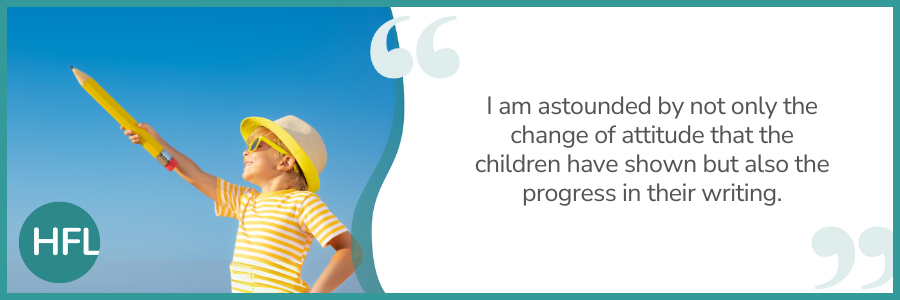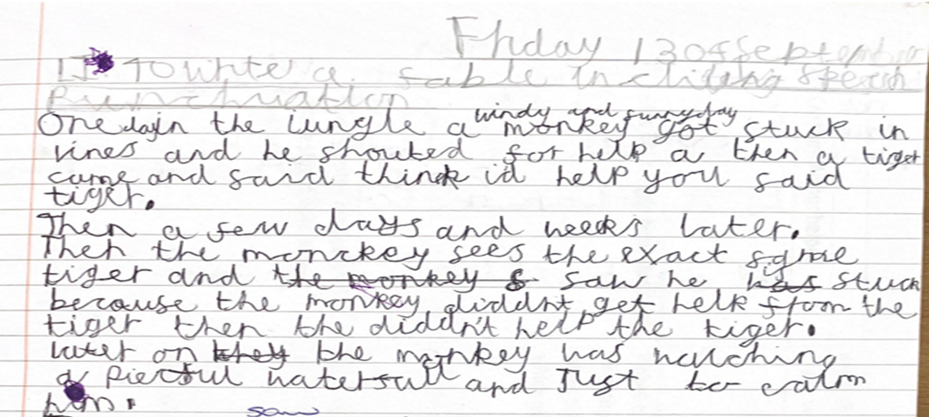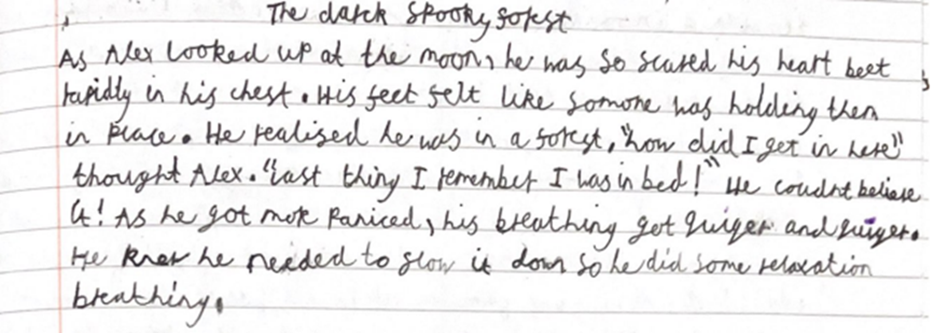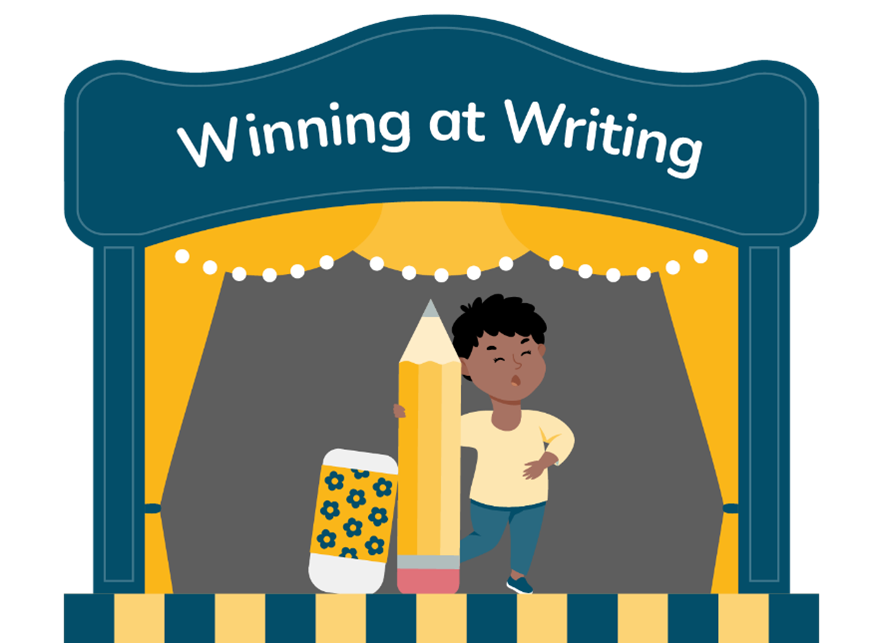
“I don’t know what to write!”
“I haven’t got any ideas!”
“Writing is boring and just makes my hand hurt!”
Sound familiar? I have heard variations of these quotes throughout my classroom whenever a writing task is introduced in every class I have taught over the last 10 years.
Fast forward to this week. Yesterday, one of my pupils who was firmly in the “Writing is boring” camp back in September groaned audibly when I said we wouldn’t be writing in the English lesson - groans that were echoed by many others in the room. Another pupil who was firmly in the “I haven’t got any ideas!” camp showed me a story that she had been writing at home. A third pupil who was in the “my hand hurts” camp asked to stay in during playtime to finish their writing as they wanted to write more. What’s caused this shift and change in attitude?
Winning at Writing
We have just finished implementing Winning at Writing with our Year 4 cohort. We spent the spring term using the detailed lesson plans and resources provided to teach our English lessons. I am astounded by not only the change of attitude that the children have shown but also the progress in their writing.
Before

After

In the autumn term, I attended the HFL Education Winning at Writing training. This was delivered in 3 parts, one for each of the teaching sequences. The training was informative and clear, providing lots of opportunities to learn from others on the course and share ideas. From the first training session, I had a sense of excitement about the planning and was eager to teach it and see the results. The children engaged enthusiastically with the lessons and by the end of the first sequence their change in attitude towards writing was already becoming apparent.
Prior to beginning Winning at Writing, when met with cries of, “I don’t have any ideas!” I found it hard to know how to support the pupils. The biggest barrier for my class, year after year, was their attitude towards writing. As a key stage 2 teacher, the children in my class arrived each September with a firmly established attitude towards writing.
My current class, back in September, was largely made up of children who were disengaged with writing and did not enjoy it. This was partly down to a lack of confidence and partly down to a perceived lack of ideas. The use of writing journals, which is a key part of Winning at Writing, gave children the confidence to ‘have a go’ at writing. The shift to writing for a real purpose (the children knew they were writing stories to share with their families) helped those reluctant and disengaged writers to see the purpose of their writing which gave them a motivation to write.
The biggest change for me as a teacher is how I speak to the children about their writing. When discussing their writing, I now always use the phrase, “As your reader...” For example, “As your reader, I am imagining .... is this what you wanted?” Very quickly my children grew confident with saying, “No that’s not,” and recognising that they needed to change something. It did not take long before they were then able to identify exactly what needed to change and edit their writing accordingly. This conferencing was a highlight of the project for me and having time to sit with the children and discuss their writing, without focusing purely on grammar and punctuation errors, enabled me to have a clear knowledge of each pupil’s next steps and quickly put scaffolds in place to help the children reach these.
The focus on the writing processes in Winning at Writing meant the children were clear about the stage of writing they were at each lesson. The colourful icons that accompany each stage were brilliant and through incorporating them at the start of every IWB presentation and on the working wall the children were always able to identify what the focus of the lesson was and therefore the success criteria they needed to achieve. The proof-reading and editing stages ensured the children were aware that these are both key parts of writing and not an ‘extra’ when you have finished. This has had a lasting impact on my class and they are now able to edit and proof-read more effectively.
Another noticeable and very positive difference in my classroom is the way the children talk to each other when writing. The children now regularly ask their peers to read their writing and tell them if it makes sense or if they need to change anything. They also use the phrase, “as the reader, does this make sense?” which has helped them to become more independent writers, proof-readers and editors.
Having just finished our latest unit of writing, it is very encouraging that the children have continued to make progress with their writing, in many cases rapid progress, and the impact of Winning at Writing continues to be seen.
Finally, these quotes from a pupil highlight the massive shift in attitude that has taken place over the 12 weeks. Before Winning at Writing, when asked how he felt when faced with a writing task, he said, “I feel nervous, miserable, sad and worried.” When asked the same question at the end of the 12 weeks he said, “I really want to write because I like writing.” Unsurprisingly, the quality of his writing has improved dramatically.
The difference in my class in such a short space of time has amazed me and I am pleased to say that now when told they are going to be completing a writing task the resounding response is: “Yes!”



